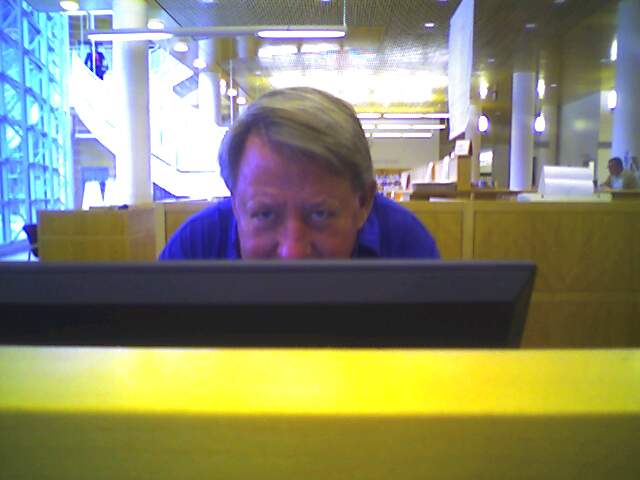Your scribe has been wondering how to follow up on his post about Isabelle Demers, and so far somehow nothing has seemed to fit the bill—until last night, that is. David Flood, Organist and Master of the Choristers at Canterbury Cathedral, is one of those gifted and tireless performers who will never give merely one recital when two will do just as nicely.
Well, it was in fact only a single recital he gave in the Cathedral on the evening of May 1, but as usual there was enough music and musical brilliance to comprise two normal recitals. In fact, David did everything himself, from unlocking the south door to let us all in (was that the same wrought iron key your scribe had used in years past?) to introducing himself (the Archdeacon of Maidstone having decided not to put in an appearance on David’s behalf) to playing one of the best recitals Canterbury—and indeed the rest of the musical world—has yet heard.
The first selection was the Allegro Maestoso from Elgar’s Sonata in G. Like the consummate artist he is, David used the opportunity to showcase different stops that are rarely heard in the day-to-day use of the organ. Likewise, his rendition of Jehan Alain’s Le jardin suspendu was an aural palette of sounds incorporating typical Alain idioms with long sustained notes from which the delicately contrapuntal musical garden hung.
One of the most exciting pieces in organ literature is Alexandre Guilmant's March on a theme of Handel, that theme being, of course, the "Lift Up Your Heads, O Ye Gates" chorus from The Messiah. Rich in French Romantic tonalities and harmonies, the march devolves into a massive fugue reminiscent of Bach on steroids. Hands and feet flying, David sailed through it flawlessly, sending chills up and down the spines of his listeners. The dimly-lit cathedral seemed like a stone forest, and the combined beauty of the music and the setting created a sense of sheer magic.
Franck’s Prelude, Fugue, and Variation were straightforward, although David diplomatically reminded us of the “joining movement" that leads into the fugue, saying that if we counted four movements we weren’t wrong, but delicately telling us to wait until the end of the work to applaud. Canterbury’s organ will never sound like a Cavaillé-Coll, but Franck himself would no doubt have approved of David’s masterful playing.
Next followed Bach’s Prelude and Fugue in E Minor, nicknamed “The Wedge” because of the fugue subject that continually widens until the organist’s fingers and feet, initially close together, wind up an octave apart. Just as Bach did, David basically set his registration and played, with none of the gimmickry that modern organists sometimes employ. The result was a pure and homogeneous performance.
Most organists would have ended their recital at that point. David, catching a second wind, kept on going. Alan Rideout’s Three Resurrection Dances were dedicated to David’s predecessor, Allan Wicks, who died just under three months ago, on February 4 of this year. Based on three paintings by Graham Sutherland, these whimsical pieces refuse to be serious about the subject of death. Well, the entire recital was a gloss on that text. Great music lives on, and as a result, the memories of those who compose it and perform it do also.
Flor Peeter’s Lied to the Flowers was a pastiche of soft, crisp lines again showcasing some of the lightest, most rarely heard pipes on the organ. A series of unresolved dissonances makes the listener positively hungry for the sweet harmonies that bring the piece to its lovely close.
The Finale from Widor’s Symphonie VI “almost brings the roof down, but doesn’t quite,” to quote David. ’Nough said. All in all, a fabulous recital. And what does all of this have to do with Greenwich, gentle reader? Well, David has promised to try to fit us in on the choir’s next trip to the US. Then everyone in our Town will have a chance to hear the superb musicianship which he has made a hallmark of Canterbury. Meantime, he sends his greetings to Philip Moore and Jamie Hitel of Christ Church, and his assistant organist John Robinson says hello to both Jamie and James Kennerley. It's a small world we live in these days.

